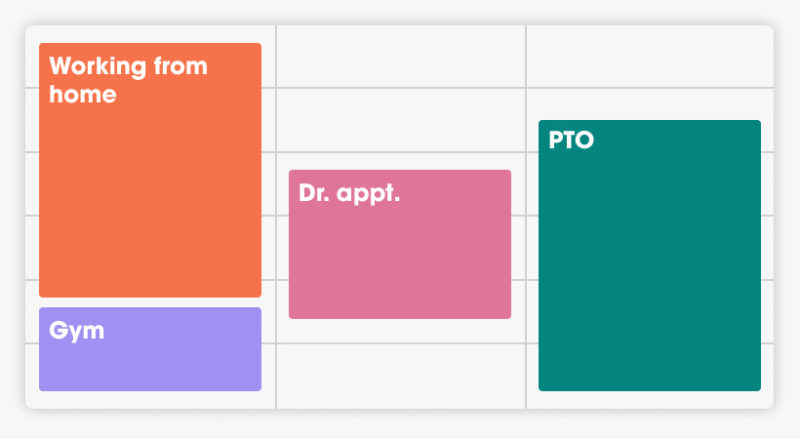Tech skill
iOS Skills
All about iOS
iOS is a mobile operating system created by Apple in 2007 for the iPhone. It was later extended to support other Apple mobile devices, such as the iPad and iPod Touch.
iOS applications can be developed in Objective-C and Swift. Swift is interoperable with Objective-C, so both languages may be used in the same application. Since Objective-C is a strict superset of C, C may also be used. Objective-C++/C++ are also supported. Apple’s XCode IDE is the standard for iOS development, though JetBrains does offer an alternative option called AppCode.
In contrast to Google’s Android, Apple maintains strict control over the distribution of iOS apps. Unless an iOS user jailbreaks their device, apps may only be installed through the App Store. They must be reviewed by Apple before they may be released. Users with “caged” (non-jailbroken) devices may still install enterprise apps through third-party sources. Unless the device is configured through Mobile Device Management, the application will not be useable until the user goes through a convoluted approval process.
What to use iOS foriOS development presents countless opportunities for building innovative and user-friendly mobile applications. Here are some key applications of iOS development:
- Consumer Apps: iOS is widely used for creating consumer-facing applications like social networking apps, messaging apps, e-commerce apps, and entertainment apps. These apps leverage features like push notifications, location services, and in-app purchases to provide personalized and immersive experiences to users.
- Enterprise Apps: iOS is also employed for building enterprise applications like productivity tools, CRM (Customer Relationship Management) apps, and employee management systems. These apps enable businesses to streamline operations, improve collaboration, and enhance productivity among employees.
- Gaming Apps: iOS is a popular platform for developing mobile games, ranging from casual puzzle games to high-end 3D games. Developers can use game engines like Unity or Unreal Engine to create immersive gaming experiences with stunning graphics, realistic physics, and multiplayer capabilities.
- Educational Apps: iOS is utilized for building educational applications like e-learning platforms, language learning apps, and educational games. These apps leverage features like ARKit and Core ML to create interactive and engaging learning experiences that cater to diverse learning styles and preferences.
- Health and Fitness Apps: iOS is compatible with health and fitness devices like smartwatches and fitness trackers, enabling developers to create apps that track fitness activities, monitor health metrics, and provide personalized health recommendations and coaching.
Here’s what it entails to be an iOS developer:
- Proficiency in iOS SDK: An iOS developer is proficient in using the iOS SDK to develop and deploy iOS applications. They are well-versed in iOS’s component-based architecture, view controllers, storyboards, and Auto Layout, and know how to use them to build robust and scalable applications.
- UI/UX Design Skills: An iOS developer possesses skills in UI/UX design for creating visually appealing and intuitive user interfaces. They understand iOS’s human interface guidelines, design principles, and asset management, and know how to design layouts that adapt to different screen sizes, resolutions, and orientations.
- Programming Languages: An iOS developer is skilled in programming languages like Swift or Objective-C, which are used for developing iOS applications. They are proficient in writing clean, concise, and maintainable code, and know how to leverage language features and frameworks to implement app logic and functionality effectively.
- Debugging and Testing: An iOS developer is familiar with debugging and testing techniques for ensuring app quality and reliability. They know how to use Xcode’s debugging tools, write unit tests and UI tests with XCTest and XCUITest, and perform manual and automated testing to identify and resolve bugs and issues.
- Performance Optimization: An iOS developer possesses skills in performance optimization for improving app responsiveness, battery life, and memory usage. They understand best practices for optimizing app startup time, reducing CPU and memory overhead, and minimizing network latency and data transfer, and know how to apply them to enhance app performance and user experience.
Here are some of the most important skills for iOS developers in 2024:
- SwiftUI and Combine: iOS developers need skills in SwiftUI and Combine for building modern and declarative user interfaces and reactive data flows. They should be familiar with SwiftUI’s syntax, modifiers, and components, and know how to use Combine’s publishers and subscribers to manage asynchronous events and data streams in iOS applications.
- UIKit and AppKit: iOS developers should have proficiency in UIKit and AppKit for building traditional UIKit-based and macOS applications. They should understand UIKit’s view hierarchy, view controllers, and responder chain, and know how to use AppKit’s classes and APIs to create native macOS applications that integrate seamlessly with the macOS ecosystem.
- Cross-Platform Development: iOS developers should have skills in cross-platform development for building applications that run on multiple platforms, including iOS, Android, and the web. They should be familiar with frameworks like Flutter, React Native, and Xamarin, and know how to write platform-agnostic code and UI components that work across different platforms.
- Machine Learning and AI Integration: iOS developers need skills in machine learning and AI integration for building intelligent applications that leverage predictive analytics and data-driven insights. They should understand iOS’s support for machine learning models and APIs like Core ML, Vision, and Natural Language, and know how to integrate machine learning models into iOS applications to enhance functionality and user experience.
- Cloud Integration and Backend Services: iOS developers should have skills in integrating with cloud services and backend systems for storing data, processing requests, and handling business logic. They should be familiar with cloud platforms like Firebase, AWS, and Azure, and know how to use services like Cloud Firestore, Cloud Functions, and Azure Functions to build scalable and reliable backend services for iOS applications.
iOS resources
Check out our resources to continue sharpening your iOS skills.
Hired profiles help developers showcase their top tech skills
After passing Hired skills assessments, candidates have the chance to showcase their skills to employers. They can opt to present an ‘Assessments’ badge on their profile. Candidates may take various assessments including Programming Skills, Full Stack, Backend, Frontend, iOS, Android, Debugging, Dev Ops Generalist, and Dev Ops AWS.
Find iOS jobs on Hired.
Hiring iOS developers can bring numerous benefits to your organization:
- Premium User Experience: iOS developers enable you to deliver a premium user experience to your customers with sleek, intuitive, and polished applications that leverage iOS’s design principles and capabilities to the fullest.
- Brand Recognition and Loyalty: iOS developers help you enhance your brand recognition and loyalty by creating apps that resonate with iOS users and align with Apple’s brand values of quality, innovation, and privacy.
- Market Opportunity: iOS developers enable you to tap into the lucrative iOS market and reach millions of affluent users who are willing to pay for high-quality and premium applications on the App Store.
Looking for candidates skilled in iOS? Technical assessments are a multi-pronged solution. They allow you to streamline the hiring process and reduce bias with tech skill-focused benchmarks.
Hired Assessments offer a library of hundreds of questions and customizable coding challenge campaigns tailored to technical preferences. Centralize and standardize your evaluation process as you surface top talent with specific, hard-to-find skills.
See how Mastercard and Axon used Hired Assessments to vet top candidates.
Resources you’ll love

How to Use Coding Challenge Events to Build Tech Talent Pipeline
About this eBook Today’s recruiting and hiring teams face multiple challenges, from low brand...

2023 Survey Results: Top 3 Benefits Ranked by Engineers (Besides Salary)
From layoffs, hiring freezes, inflation, and the explosion of AI, we’ve seen significant shifts in...

Revolutionizing Recruitment: Walking the Tech Hiring Tightrope (VIDEO)
How do you future-proof recruiting and talent acquisition in this evolving tech landscape? Watch...
